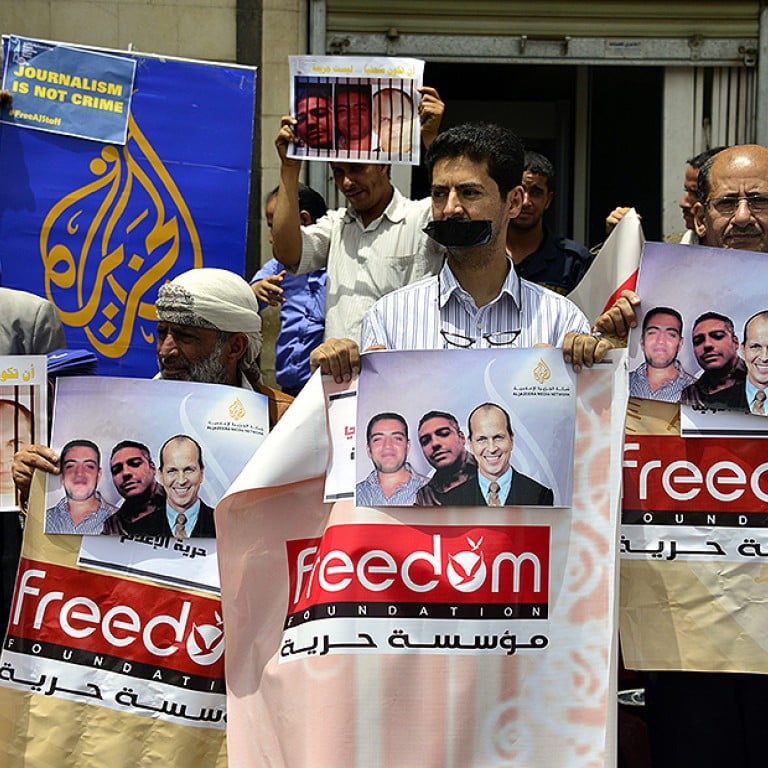
Egypt’s President Sisi wishes Al-Jazeera journalists had not faced court
Egyptian President Abdel-Fattah el-Sisi said he wished three jailed Al-Jazeera journalists including an Australian had not been put on trial, conceding the case had been damaging, a newspaper reported.
Egyptian President Abdel-Fattah el-Sisi said he wished three jailed Al-Jazeera journalists including an Australian had not been put on trial, conceding the case had been damaging, a newspaper reported.
Australia's Peter Greste, Canadian-Egyptian Mohamed Fahmy and Egyptian national Baher Mohamed were sentenced to between seven and 10 years in jail for allegedly defaming Egypt and aiding banned Islamists, in a ruling that sparked a global outcry and demands for a presidential pardon.
The June 23 sentencing had had a "very negative effect," Sisi conceded to Egyptian editors during a round-table discussion, according to the mass circulation daily .
"The sentencing of several journalists had a very negative effect, and we had nothing to do with it," Sisi was quoted as saying. "I wish they were deported after their arrest, instead of being put on trial." He appeared to be referring to Greste, the sole non-Egyptian.

Washington described the sentencing of the journalists as draconian and called on Sisi to release them, while the UN said jailing them was obscene.

But in the meeting with newspaper editors, Sisi appeared to regret the repercussions from the trial. He had said previously that it was not appropriate to comment on court rulings.
The trial against the journalists of the Qatar-based satellite television came against the backdrop of strained relations between Egypt and Doha, which supports the banned Muslim Brotherhood movement of Mursi.
The removal of Mursi unleashed a deadly crackdown on Islamists and wide-ranging arrests, prompting Washington to suspend some aid to Egypt.
During their trial, the prosecution presented a confusing array of evidence seemingly compiled at random from the journalists' computers.
After the trial, Sisi said he would not interfere in the judicial process.
"We have to respect judicial rulings and not comment on them," he said in a speech.
A presidential official said Sisi could not pardon the reporters until the appeals process has been exhausted. But there appears to be no such legal constraint in Egyptian law.
A pardon by Sisi, however, could be interpreted in Egypt as acquiescence to international pressure.
